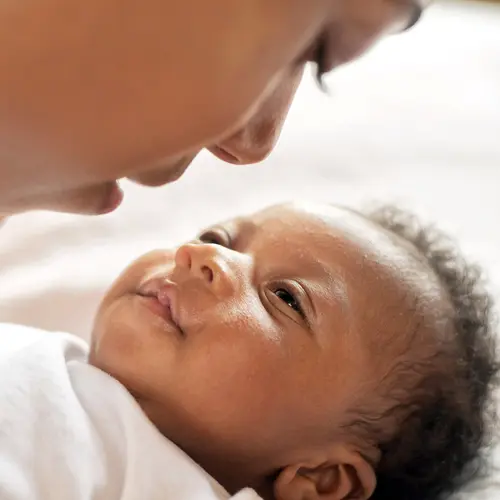The pincer grasp is the ability to hold something between the thumb and first finger. This skill usually develops in babies around 9 to 10 months old.
The pincer grasp is an important fine-motor milestone. Children use their pincer grasp to pick things up and feed themselves, and it lays the foundation for a good pencil grip when they start school.
How Does the Pincer Grasp Develop?
Your baby may not develop a pincer grasp until they are nearing the end of their first year, but a lot of fine motor development comes before that. Grasping milestones include:
Reflexive grasp. When your baby is a newborn, they will automatically grasp anything you put in their hand. This is called the palmar reflex grasp. It usually goes away by 6 months of age.
Crude palmar grasp. Around 4 months, your baby will start to use their palm to hold objects that you put in their hand. This is called a crude palmar grasp. They may also start to reach for things.
Ulnar palmar grasp. Shortly after the crude palmar grasp, your baby will develop the ulnar palmar grasp. This happens when they hold an object more toward the pinkie side of their hand. They will still use the palmar grasp, and the thumb isn't involved yet.
Raking grasp. When your baby is about 6 months old, they will start using a raking grasp to pick up objects. They use all of their fingers at the same time to pick up an object.
Radial palmar grasp. This is the first time your baby will start to use their thumb to help grasp small objects. Their fingers will curl around the object, and their thumb will stabilize it on the side.
Scissors grasp. As your baby's thumb dexterity increases, they will be able to grasp a small object such as a raisin between their thumb and the side of their curled index finger. This will happen when your baby is around 8 months old.
Radial digital grasp. When your baby is about 9 months old, they will be able to hold an object between their fingers and thumb. They won't need to use their palm for stabilization.
Inferior pincer grasp. Before your baby gets a refined pincer grasp, they use an inferior pincer grasp. In this grip, your baby holds a small object between their thumb and forefinger using the pads. The object will be more toward the thumb side of the hand.
Superior pincer grasp. Around the time of your baby's first birthday, they will have a fully developed fine pincer grasp. They will be able to pick up small objects with the tips of their thumb and index finger. They will also start using one finger to point at things that capture their interest.
Activities to Encourage Pincer Grasp
Some activities and toys can support the development of your baby’s pincer grasp. The hand movements used while playing will help increase the strength and dexterity of their thumb and first finger. Some activities should be avoided or limited while your baby's fine motor skills are developing.
Age-appropriate toys. Your baby will naturally progress through these developmental milestones. Much of their play at this age will consist of exploring their environment through their senses. Although you will be their favorite playmate, there are some developmentally appropriate toys you can offer, including:
- A mirror for your baby to engage with their own reflection
- Stacking rings for your baby to practice putting the rings on a small cone
- A crib mobile to attract your baby's interest and develop their attention span
- Push-pull toys to help your baby practice gross motor skills
Avoid technology. A 2017 study showed that children with the best pencil grip in kindergarten used the least technology at home. They also took part in more fine motor activities at home. Fine motor skills in kindergarten are associated with later achievement in school.
Additionally, the American Academy of Pediatrics recommends no screen time for children under 18 months, other than video calls. Babies don't learn well from screens, despite what marketers may claim. Babies need face-to-face interaction to learn.
All babies reach different milestones at different times, but if you are concerned about your baby's pincer grasp development or fine motor skills, talk to your doctor.


